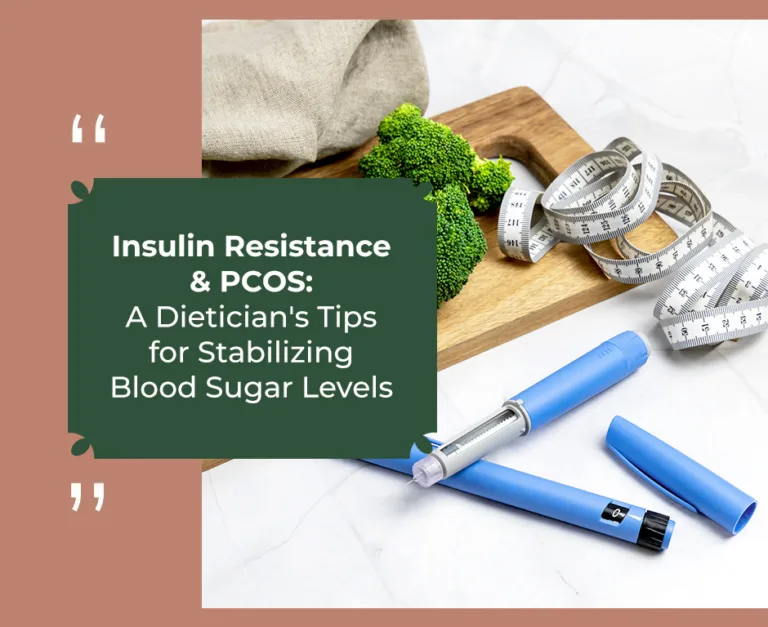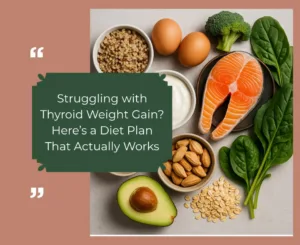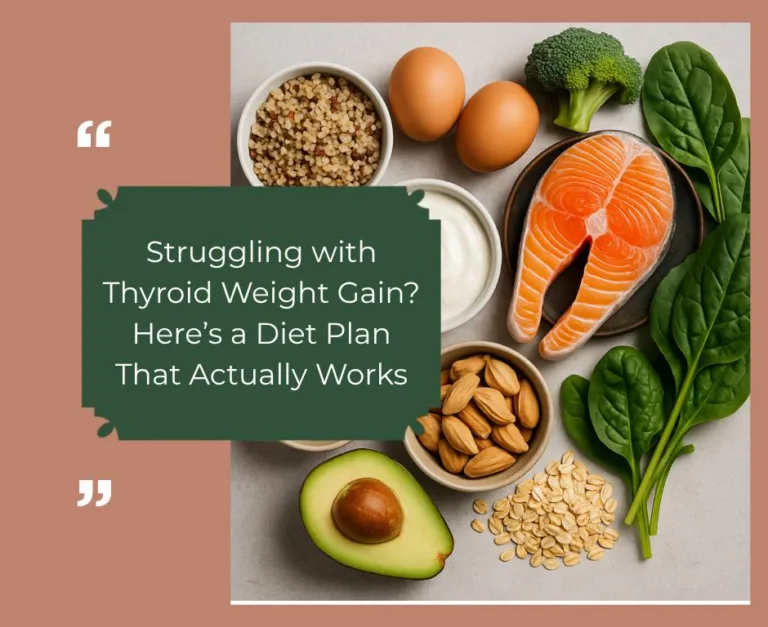Feeling tired, gaining weight, and battling cravings? If you have PCOS (Polycystic Ovary Syndrome), you are probably no stranger to these struggles. The culprit might be insulin resistance – a condition that makes it harder for your body to process sugar, leading to hormonal imbalances. But here’s the good news – the right PCOS nutrition plan from expert nutritionists for PCOS can help you feel in control again. Let us understand how!
What is PCOS?
PCOS is a hormonal condition that affects women of reproductive age. It often comes with:
- Irregular periods or missed cycles.
- Weight gain, especially around the belly.
- Acne and oily skin.
- Excess hair growth, especially facial hair
- Thinning hair on the scalp.
Additionally, insulin resistance is a big player in PCOS symptoms.
What is Insulin Resistance?
Think of insulin as a key that unlocks your cells, allowing sugar to enter and give you energy. But with insulin resistance, the key doesn’t work well, so sugar stays in your blood. This triggers your body to produce more insulin. It further leads to constant hunger and cravings (especially for carbs), weight gain, particularly around the belly, and feeling tired and sluggish even after eating.
In women with PCOS, high insulin levels also increase male hormones (androgens), making symptoms like acne, hair growth, and irregular cycles worse.
So, how do you tackle this? With a customized PCOS diet guide!
PCOS Nutrition Plan: 5 Diet Tips to Balance Blood Sugar with PCOS
Start with Protein and Fibre
Balance your meals with protein, fibre and healthy fats to keep blood sugar steady. Protein and fats in your PCOS diet guide help balance blood sugar by slowing down digestion.
- Proteins: Eggs, chicken, fish, pulses, yoghurt, etc.
- Fibre: Leafy vegetables (methi, palak, different types of saag), millets, oats, chia seeds, etc.
- Healthy Fats: Nuts, seeds, dates, coconut meat, etc.
Quick Tip: Add protein to every meal – even snacks! Snack on a boiled egg and a handful of almonds to keep cravings in check.
Include Low-GI Foods
Low glycemic index (GI) foods prevent sudden sugar spikes and crashes. As part of your PCOS nutrition plan, skip white bread, pasta and sugary snacks to load up on low-GI foods. Here are some popular choices:
- Grains: Barley, Brown rice, Millets, Poha, Quinoa, etc.
- Pulses: Green gram, Lobia (Black Eyed Peas), Soyabean, Chhole, Rajma, etc.
- Vegetables: Ladyfinger, Cabbage, Green Peas, Radish, Brinjal, Sweet Potatoes, Cauliflower, Cucumber, Carrot, Broccoli, etc.
- Fruits: Apricot, Apple, Orange, Dates, Strawberries, Peach, Kiwi, Pear, Pomegranate, Guava, etc.
- Dairy Products: Milk, Curd, Yogurt, Paneer, Buttermilk, etc.
- Meat: Eggs, Fish, Chicken, Mutton, etc.
- Others: Walnuts, Almonds, Sunflower Seeds, Dark Chocolate, Peanuts, etc.
Eat Small, Frequent Meals
Instead of 3 big meals, try smaller, frequent meals throughout the day to avoid blood sugar dips and cravings. This is an example of how you can space out your meals with your PCOS nutrition plan:
- Breakfast
- Mid-morning snack
- Lunch
- Evening snack
- Dinner
Hydrate and De-Stress
Dehydration and stress can spike cortisol, which messes with blood sugar levels. So, ensure the following along with your PCOS diet guide:
• Drink up: Aim for 8 – 10 glasses of water daily.
• Relax: Try yoga, meditation or even a 10-minute walk to reduce stress.
Move Your Body – Daily!
Exercise improves insulin sensitivity – your body’s ability to use sugar properly.
- Cardio: Walking, jogging or cycling.
- Strength Training: Helps build muscle, which burns sugar efficiently.
- Yoga or Pilates: Reduces stress and improves hormonal balance.
Tip: Aim for 30 minutes of activity at least 4 – 5 days a week.
Ready to Take Charge of Your Health?
Managing PCOS and insulin resistance doesn’t have to feel overwhelming. Small changes – like eating smarter, staying active and hydrating – can have a big impact.
Need a personalised PCOS diet guide? At The Health Studio, our expert nutritionists for PCOS and insulin imbalances can create a customised meal plan tailored to your needs. Book a consultation today and take the first step toward balancing your hormones and improving your well-being!

























